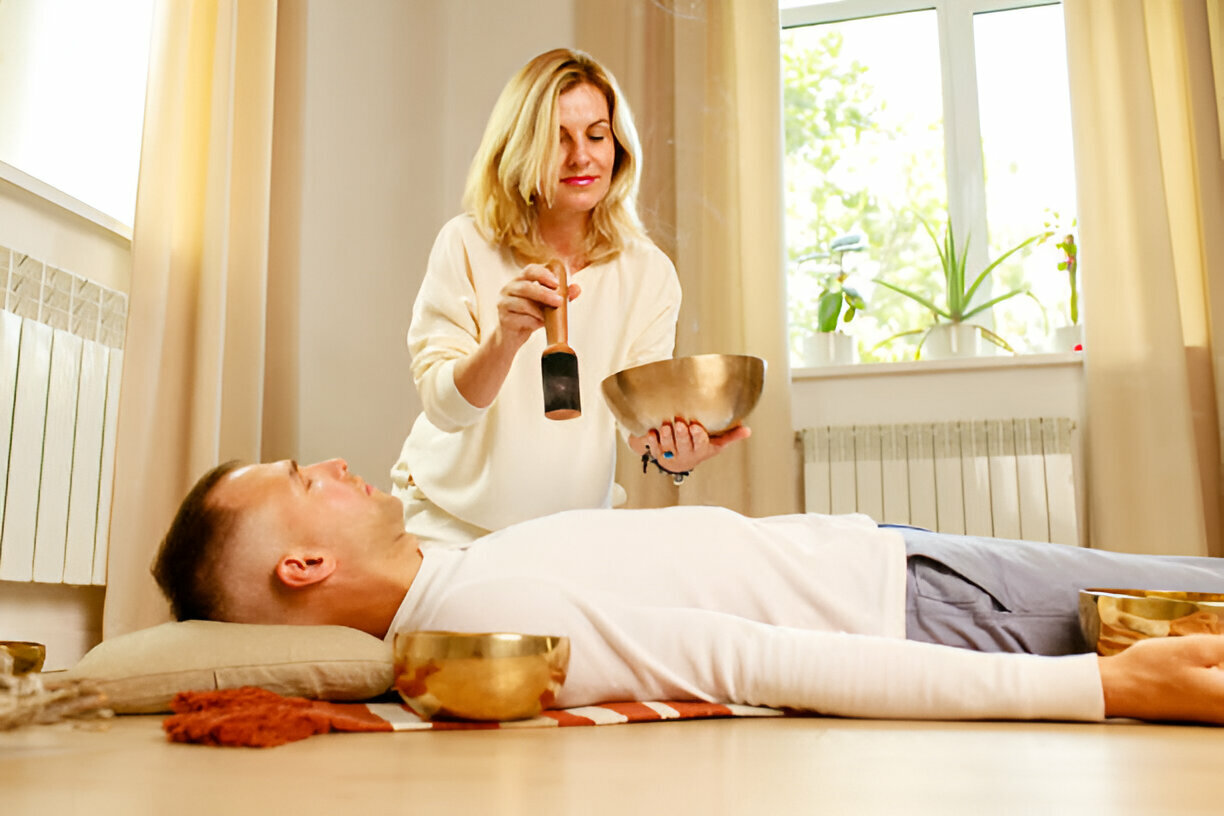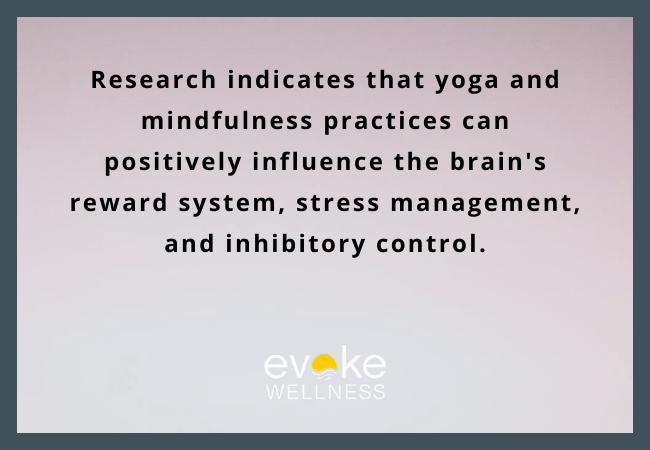Addiction recovery is not a one-size-fits-all journey. While traditional talk therapy and evidence-based modalities like cognitive-behavioral therapy and medication-assisted treatment are essential parts of healing, they are not always enough to address the deeper layers of trauma, emotional disregulation, and spiritual disconnection many people face. That’s why holistic therapies—such as yoga, meditation, breath work, acupuncture, and art therapy—are becoming increasingly central in residential treatment programs.
At Evoke Wellness at Cohasset, we recognize the critical importance of treating the whole person—mind, body, and spirit. Our approach integrates clinical care with holistic practices to ensure clients experience profound and sustainable healing. This blend of traditional and alternative modalities is especially powerful in residential treatment, where individuals are immersed in a supportive environment with time and space to reconnect with themselves.
This blog will explore how holistic therapies function in residential rehab, the science behind their effectiveness, and how they can help transform lives through physical, emotional, and spiritual restoration.
The Role of Holistic Healing in Addiction Recovery
Holistic therapies aim to bring balance and awareness to all areas of a person’s life. While addiction is often addressed through detox and clinical interventions, many people discover that unresolved emotional pain, trauma, or spiritual emptiness lie at the core of their substance use. Holistic therapies seek to fill these gaps in a non-invasive, empowering way.
In residential rehab, holistic healing doesn’t replace traditional treatment—it complements it. Clients may start their morning with a yoga session, attend group and individual therapy during the day, engage in guided meditation in the afternoon, and end with expressive therapies like art or journaling. These practices help individuals release tension, improve emotional regulation, and foster internal peace.
For those entering a Residential Treatment Center in Massachusetts, the inclusion of holistic therapies adds an extra layer of depth and personalization that enhances long-term recovery outcomes.
Yoga: Rebuilding the Mind-Body Connection
Yoga has become a cornerstone of holistic addiction treatment for good reason. This ancient practice combines physical postures (asanas), breath control (pranayama), and mindfulness to promote mental clarity, physical strength, and emotional balance.
Many individuals entering rehab feel disconnected from their bodies—ashamed, physically weak, or detached due to trauma or substance use. Yoga helps rebuild the mind-body connection in a safe and compassionate way. It teaches clients how to be present in their bodies without judgment and how to release stored stress and trauma through movement.
Practicing yoga regularly can:
-
Reduce symptoms of anxiety and depression
-
Improve sleep and immune function
-
Increase self-awareness and self-acceptance
-
Decrease cravings and stress hormones like cortisol
The peaceful and meditative environment of a residential rehab allows yoga to become a daily ritual, grounding individuals during a time of major life transformation.
Meditation and Mindfulness: Finding Stillness in Recovery
Addiction often thrives in chaos—racing thoughts, impulsive behavior, and emotional reactivity are common experiences. Meditation introduces individuals to the healing power of stillness and presence. Through focused breathing, guided imagery, or silent observation, clients learn to detach from reactive thoughts and tune into the deeper layers of their consciousness.
Meditation is not about forcing the mind to be quiet. It’s about learning to witness thoughts and emotions without being controlled by them. Over time, this practice rewires the brain to respond instead of react. That’s why mindfulness-based approaches are frequently integrated into Substance Abuse Treatment Programs in Massachusetts—they offer clients sustainable tools for emotional regulation.
Benefits of meditation in rehab include:
-
Enhanced emotional resilience
-
Improved concentration and impulse control
-
Decreased symptoms of PTSD and chronic stress
-
A greater sense of inner peace and purpose
When practiced consistently during residential treatment, meditation becomes a cornerstone of inner stability that clients can carry with them into aftercare and long-term sobriety.
Breathwork and Somatic Healing
One of the most profound yet overlooked tools in addiction recovery is the breath. Breathwork refers to intentional breathing techniques that alter the body’s physiological state. From calming the nervous system to releasing trauma stored in the body, breathwork offers immediate and long-term benefits.
In residential rehab, breathwork sessions often accompany other somatic healing modalities—such as progressive muscle relaxation or body scanning—to help clients reconnect with themselves on a deeper level. This is especially helpful for individuals with histories of trauma or those experiencing emotional overwhelm.
Clients learn how to use their breath to:
-
Calm panic and anxiety attacks
-
Improve focus and sleep
-
Release suppressed emotions
-
Increase feelings of safety and presence
This deeper self-awareness strengthens other therapeutic work and helps individuals build coping strategies rooted in their own bodies and breath.
Creative and Experiential Therapies
In addition to yoga and meditation, holistic rehab often includes art therapy, music therapy, dance/movement therapy, journaling, and even outdoor experiences like nature walks. These experiential therapies offer clients safe avenues to express emotions they may not yet be able to verbalize in traditional therapy.
Art and music, in particular, are powerful because they bypass the analytical mind and go straight to the emotional and subconscious layers of experience. For those who feel stuck, numb, or dissociated, these creative outlets can help unlock a greater sense of identity and empowerment.
For individuals in an Intensive Inpatient Program in Massachusetts, where therapy and structure are paramount, these creative outlets offer freedom, exploration, and healing in ways that feel safe and deeply personal.
Alternative Healing Therapies
While yoga and meditation are more well-known, many residential rehabs are also incorporating other forms of alternative healing into their treatment models, including:
-
Acupuncture: Often used to reduce cravings and withdrawal symptoms by stimulating specific energy meridians in the body.
-
Reiki: A gentle, energy-based practice that promotes deep relaxation and emotional healing.
-
Sound healing: Uses tuning forks, singing bowls, or gongs to release energetic blockages and restore emotional harmony.
These practices provide non-verbal healing, which can be especially helpful for those who struggle to process trauma or emotional pain through words alone.
In a Mental Health Treatment Center in Massachusetts, combining these therapies with evidence-based psychiatric care creates a comprehensive and compassionate approach to wellness.
Holistic Healing for Co-Occurring Disorders
Holistic therapies are particularly effective for individuals with dual diagnosis—those who suffer from both addiction and mental health disorders such as anxiety, depression, PTSD, or bipolar disorder. These conditions often create a cycle of emotional pain and self-medication that is hard to break through talk therapy alone.
Integrating holistic modalities alongside clinical treatment provides a more balanced, trauma-informed approach. It allows clients to address the emotional and physical dysregulation that often accompanies both mental illness and addiction. Breathwork calms anxiety, yoga regulates the nervous system, and expressive therapies provide emotional relief—all while reinforcing the progress made in traditional therapy.
Clients at an Addiction Treatment Center in Massachusetts who receive this integrated care often experience a more profound, lasting transformation, because both the root and the symptom are being addressed.
Why Choose Evoke Wellness?
At Evoke Wellness, we believe that true recovery happens when the mind, body, and spirit are all part of the healing process. That’s why we integrate evidence-based treatment with holistic therapies to support every aspect of our clients’ well-being. As a leading Addiction Treatment Center in Massachusetts, we offer individualized care that meets you where you are and walks with you toward lasting recovery.
Our residential rehab program includes daily access to yoga, mindfulness sessions, experiential therapy, and holistic healing modalities—all delivered by compassionate professionals in a serene, supportive setting. You’ll receive comprehensive care in a place designed for deep transformation and healing.
Conclusion
Holistic therapies are no longer an “alternative” approach—they’re an essential component of effective, long-term addiction treatment. By including yoga, meditation, breathwork, and other healing practices in residential rehab, individuals are empowered to reconnect with themselves on a deeper level. These therapies offer the tools to regulate emotions, reduce stress, and foster inner peace—critical components of lasting recovery.
At Evoke Wellness at Cohasset, we’re proud to offer a treatment environment where clients can explore these holistic practices while receiving comprehensive clinical care. Whether you’re just beginning your recovery journey or seeking deeper healing after relapse, we invite you to explore a program that honors your full self—mind, body, and spirit. To learn more or speak to a member of our team, call us today at 866.931.6429. Our admissions staff is here to guide you toward a path of healing and transformation.
Frequently Asked Questions (FAQs)
What is holistic therapy in residential rehab?
Holistic therapy in residential rehab includes practices such as yoga, meditation, acupuncture, and breathwork, which aim to heal the mind, body, and spirit. These therapies complement traditional addiction treatment, helping individuals develop emotional resilience, physical well-being, and spiritual healing.
How does yoga help in addiction recovery?
Yoga in addiction recovery helps individuals reconnect with their bodies, regulate emotions, and reduce stress. The practice encourages mindfulness and self-awareness, which can help clients manage cravings and emotional triggers more effectively.
Can meditation improve mental health during rehab?
Yes, meditation plays a vital role in improving mental health by reducing symptoms of anxiety, depression, and PTSD. It allows clients to cultivate mindfulness and emotional regulation, supporting long-term recovery.
What other holistic therapies are available in rehab?
Along with yoga and meditation, many residential rehabs offer acupuncture, reiki, sound healing, and art therapy. These alternative healing methods help release emotional blockages and improve overall well-being, aiding in the recovery process.
Why are holistic therapies important in addiction treatment?
Holistic therapies address the root causes of addiction, such as trauma, stress, and emotional pain, by promoting healing in all areas of life—physical, emotional, and spiritual. These therapies help clients achieve a balanced and sustainable recovery.





